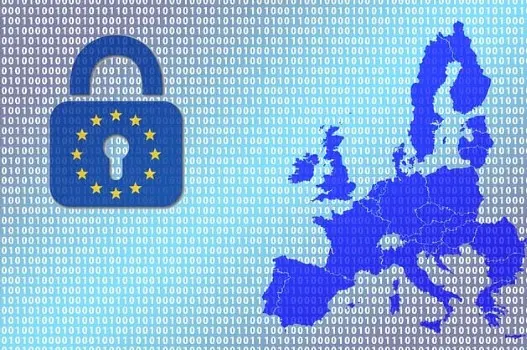In today’s digital age, data has become the lifeblood of businesses across industries. From customer information to financial records, companies rely heavily on data for their day-to-day operations and decision-making processes. However, with great data comes great responsibility. Business owners must navigate through a complex web of data compliance regulations to ensure they are protecting the privacy and security of their customers’ information.

Understanding the Importance of Data Compliance
Data is no longer just a commodity but a strategic asset that holds immense value. Organizations use data to gain insights into customer behavior, drive personalized marketing campaigns, and enhance operational efficiency. However, the growing volume of data has also raised concerns regarding its misuse and potential breaches.
As a business owner, you are responsible for safeguarding the data you collect and process. Ensuring data compliance is a legal requirement and a foundation for building trust with your customers. When it comes to data compliance, there are several key aspects to consider. First and foremost, it is important to understand the various regulations and laws that govern data protection. These include the General Data Protection Regulation (GDPR) in the European Union, the California Consumer Privacy Act (CCPA) in the United States, and many others.
These regulations outline specific requirements for how businesses should handle and protect personal data. One of the main reasons why compliance matters is that it serves as a safeguard against data breaches, fraud, and privacy violations. You can protect sensitive customer information from unauthorized access and misuse by adhering to data compliance regulations. This not only helps to prevent financial losses but also preserves the trust and loyalty of your customers.
Moreover, compliance is not just about avoiding legal repercussions. It also plays a crucial role in maintaining your company’s reputation. In today’s digital age, news of data breaches spreads quickly and can devastate a business. Customers are increasingly concerned about the security of their personal information, and they are more likely to choose companies that prioritize data protection.
The Role of Data in Modern Business
Data is the fuel that powers modern businesses. It enables organizations to analyze trends, identify patterns, and make data-driven decisions. From improving customer experiences to streamlining internal processes, data plays a vital role in driving innovation and growth.
For example, businesses can gain insights into their preferences, behaviors, and needs by analyzing customer data. This allows them to tailor their products and services to better meet customer expectations, ultimately leading to increased customer satisfaction and loyalty.
Data also plays a crucial role in optimizing operational processes. By analyzing production, supply chain management, and customer demand data, businesses can identify improvement areas and make informed decisions to streamline their operations.
Furthermore, data is instrumental in driving innovation. By analyzing large datasets, businesses can uncover hidden patterns and trends that can lead to breakthrough discoveries and new business opportunities. This can give companies a competitive edge in the market and help them stay ahead of the curve.
Why Compliance Matters
Compliance serves as a safeguard against data breaches, fraud, and privacy violations. You can protect sensitive customer information from unauthorized access and misuse by adhering to data compliance regulations. Failure to comply with data regulations can result in legal repercussions, hefty fines, reputation loss, and customer trust erosion.
In addition to legal and financial consequences, non-compliance can significantly impact a business’s ability to operate effectively. Many data compliance regulations require businesses to implement specific security measures and protocols. Failure to meet these requirements can result in disruptions to business operations and potential loss of business opportunities.
Moreover, compliance is not just about avoiding negative consequences; it also presents opportunities for businesses to differentiate themselves from their competitors. Businesses can build trust and credibility with their customers by demonstrating a commitment to data protection and compliance. This can lead to increased customer loyalty, positive brand perception, and sustainable business growth.
In conclusion, data compliance is a critical aspect of modern business. It helps protect sensitive customer information and ensures that businesses operate ethically and responsibly. By understanding the importance of data compliance and taking the necessary steps to comply with regulations, businesses can safeguard their reputation, build trust with their customers, and drive long-term success.

Key Data Compliance Regulations to Know
As a business owner, it is essential to familiarize yourself with the key data compliance regulations that apply to your industry. Here are three crucial regulations that you should be aware of:
General Data Protection Regulation (GDPR)
The General Data Protection Regulation (GDPR) is a comprehensive data protection law that applies to businesses operating within the European Union (EU). It sets stringent requirements for organizations regarding data collection, processing, and storage. Compliance with the GDPR ensures that individuals’ personal data is handled responsibly and securely.
The GDPR not only applies to businesses based in the EU but also to organizations outside the EU that process the personal data of EU residents. It aims to protect individuals’ fundamental rights and freedoms by giving them more control over their personal data. The regulation requires businesses to obtain explicit consent from individuals before collecting and using their personal information.
Under the GDPR, individuals have the right to access their personal data, request corrections or deletions, and restrict or object to the processing of their data. Organizations must also implement appropriate security measures to protect personal data from unauthorized access, loss, or disclosure.
Non-compliance with the GDPR can result in severe penalties, including fines of up to 4% of global annual turnover or €20 million, whichever is higher. Therefore, it is crucial for businesses to understand and adhere to the requirements of the GDPR to avoid legal consequences and maintain customer trust.
California Consumer Privacy Act (CCPA)
The California Consumer Privacy Act (CCPA) is a data privacy law that grants California residents certain rights and protections regarding their personal information. It imposes obligations on businesses that collect or sell personal data of California consumers. Understanding and complying with the CCPA is crucial for businesses operating in California.
The CCPA provides California residents with the right to know what personal information businesses collect about them and how it is used. Individuals can also request that their personal information be deleted and opt out of the sale of their data. Businesses must disclose their data collection practices and provide a clear and conspicuous opt-out option on their websites.
The CCPA applies to businesses that meet certain criteria, such as having an annual gross revenue of $25 million or more, collecting personal information of 50,000 or more California residents, or deriving 50% or more of their annual revenue from selling personal information.
Complying with the CCPA involves implementing robust data protection measures, updating privacy policies, and establishing procedures to handle consumer requests and inquiries. It is essential for businesses to stay up-to-date with any amendments or changes to the CCPA to ensure ongoing compliance. Non-compliance with the CCPA can result in fines and other legal consequences.
Health Insurance Portability and Accountability Act (HIPAA)
The Health Insurance Portability and Accountability Act (HIPAA) is a U.S. federal law that safeguards sensitive patient health information. It applies to healthcare providers, health plans, and other entities that handle protected health information (PHI). Compliance with HIPAA ensures the privacy, security, and integrity of individuals’ medical records.
HIPAA sets standards for the protection of PHI, including electronic health records, medical billing information, and other individually identifiable health information. Covered entities must implement administrative, physical, and technical safeguards to protect PHI from unauthorized access, use, or disclosure.
Under HIPAA, individuals have the right to access their medical records, request corrections, and receive an accounting of disclosures. Covered entities must also provide individuals with a notice of privacy practices that explains their rights and how their information is used and disclosed.
Non-compliance with HIPAA can result in significant penalties, ranging from monetary fines to criminal charges. It is crucial for healthcare providers and other covered entities to implement HIPAA-compliant practices, conduct regular risk assessments, and train employees on data security and privacy protocols.
Additionally, business associates of covered entities, such as IT service providers or medical billing companies, are also subject to HIPAA regulations. They must enter into a business associate agreement with covered entities and comply with HIPAA requirements to ensure the protection of PHI.
Steps to Ensure Data Compliance
As a business owner, you must establish a comprehensive data compliance program. Here are three essential steps to take:
Conducting a Data Audit
Start by thoroughly auditing the data you collect, store, and process. Identify the types of data you handle, where it is stored, and who has access to it. This audit will help you understand the scope and scale of your data compliance requirements. PPGS ™ can conduct an audit that objectively assesses your privacy policy, data collection practices, and security measures.
Implementing Data Protection Measures
Once you have identified the data you hold, it’s crucial to implement robust data protection measures. This includes ensuring data encryption, secure storage, access controls, and regular backups. You should also consider implementing multi-factor authentication and robust cybersecurity measures to prevent unauthorized access.
Training Staff on Data Compliance
Ensure that all employees understand their roles and responsibilities when it comes to data compliance. Conduct regular training sessions to educate your staff about the importance of data protection, how to handle sensitive data, and what actions to take in the event of a data breach. Creating a data compliance culture is crucial for your business’s long-term success and security.
The Role of Data Compliance Officers
Data compliance is a complex and evolving field. To effectively navigate through the requirements and stay ahead of potential risks, many businesses choose to assign a dedicated data compliance officer.
Responsibilities of a Data Compliance Officer
A data compliance officer is responsible for ensuring that the organization complies with relevant data protection laws and regulations. They oversee the implementation of data protection policies, conduct risk assessments, and advise on data compliance strategies. A data compliance officer is instrumental in creating a culture of data compliance within the organization.
Hiring a Data Compliance Officer: What to Look For
When hiring a data compliance officer, look for someone with a deep understanding of data protection laws, industry best practices, and emerging trends. They should possess analytical skills, attention to detail, and excellent communication skills. Additionally, a data compliance officer should be able to adapt to changing regulatory requirements and effectively collaborate with various stakeholders within the organization.
The Consequences of Non-Compliance
Data breaches and non-compliance can have severe consequences for businesses. Here are two major ramifications:
Legal Ramifications of Data Breaches
Failure to comply with data regulations can lead to legal action by authorities and affected individuals. Businesses may face hefty fines, class-action lawsuits, and reputational damage, depending on the circumstances. It is crucial to take proactive measures to prevent data breaches and promptly respond if one occurs.
The Impact on Business Reputation
A data breach can irrevocably damage a business’s reputation. Customers value their privacy and trust organizations to protect their sensitive information. If a company fails to safeguard customer data, it can lead to a loss of trust and loyalty. Rebuilding a tarnished reputation can be an uphill battle.
As a business owner, navigating data compliance regulations is critical to your operations. By understanding the importance of data compliance, staying updated on relevant regulations, and implementing robust measures, you can protect your customers’ data and build a foundation of trust and reliability. Remember, data compliance is not optional; it is a fundamental responsibility for all businesses in today’s digital landscape.
